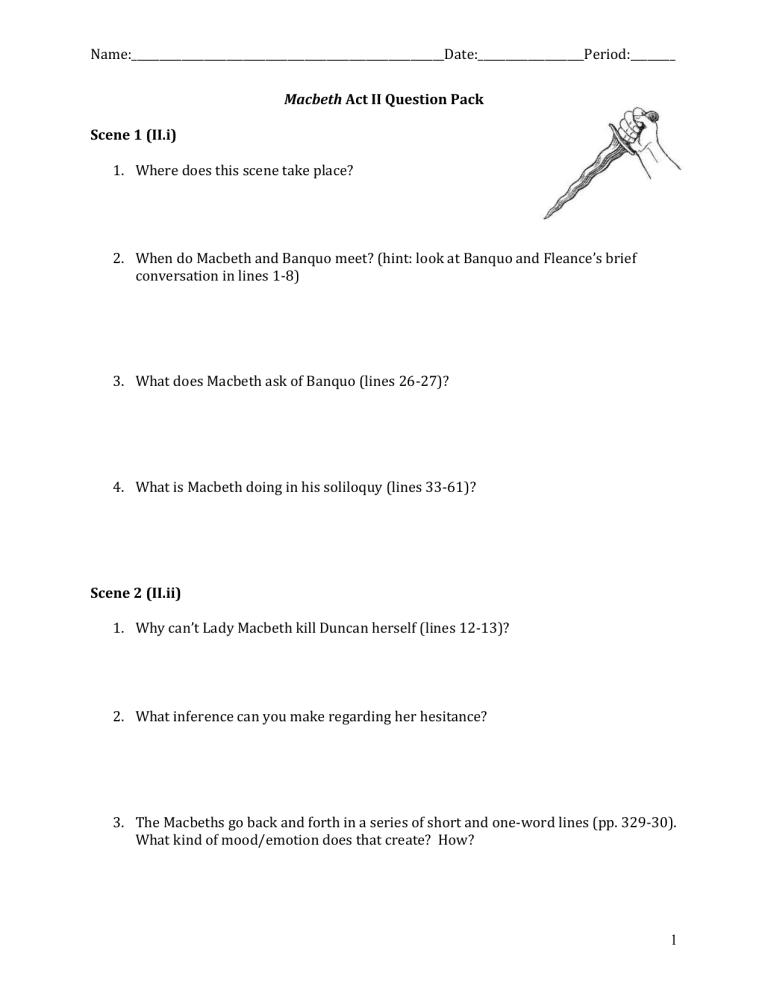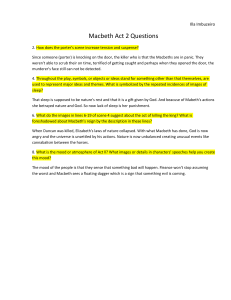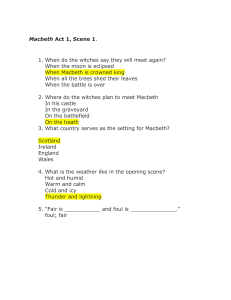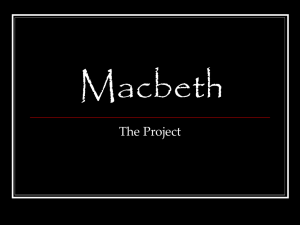
Name:________________________________________________________Date:___________________Period:________ Macbeth Act II Question Pack Scene 1 (II.i) 1. Where does this scene take place? 2. When do Macbeth and Banquo meet? (hint: look at Banquo and Fleance’s brief conversation in lines 1-8) 3. What does Macbeth ask of Banquo (lines 26-27)? 4. What is Macbeth doing in his soliloquy (lines 33-61)? Scene 2 (II.ii) 1. Why can’t Lady Macbeth kill Duncan herself (lines 12-13)? 2. What inference can you make regarding her hesitance? 3. The Macbeths go back and forth in a series of short and one-word lines (pp. 329-30). What kind of mood/emotion does that create? How? 1 4. When Macbeth recalls not being able to say ‘Amen,’ what does that reveal about him (lines 26-28)? 5. What does Macbeth wish the knocking could do (line 73)? Scene 3 (II.iii) 1. To what gate does the Porter compare the gate of Macbeth’s castle (lines 1-2)? 2. How is the Porter’s reaction to the knocking different than the Macbeths’ reaction to it in the previous scene? 3. What does the Porter provide in this scene? 4. Who has been doing all of the knocking (line 44)? 5. What sort of night has Lennox experienced (lines 55-62)? 6. What is the first reaction to the King’s death (lines 65-66)? Whose reaction is it? 2 7. How does this reaction reflect the concept of monarchy held by Elizabethans (see ‘Literature in Context’ box on p. 334)? 8. What is called “death’s counterfeit” (line 77)? 9. What does Macbeth mean when he says to Donalbain, “the fountain of your blood / Is stopped” (lines 99-100)? 10. In lines 109-118 Macbeth confesses to killing Duncan’s guards after seeing the murdered Duncan. What are a few of the reasons he lists for killing the guards in this speech? 11. Why does Macbeth actually kill the guards? 12. Why do Malcolm and Donalbain decide to flee (lines 120-147)? 13. In what way(s) is this a smart choice? In what way(s) is it a poor one? 3 Scene 4 (II.iv) 1. Where does this scene take place? 2. What two strange occurrences are reported in this scene (lines 7-8, 14-18)? 3. Why would Shakespeare include reports of such occurrences at this point in the play? 4. What does the line, 'God's benison go with you, and with those that would make good of bad, and friends of foes!' mean? 4



